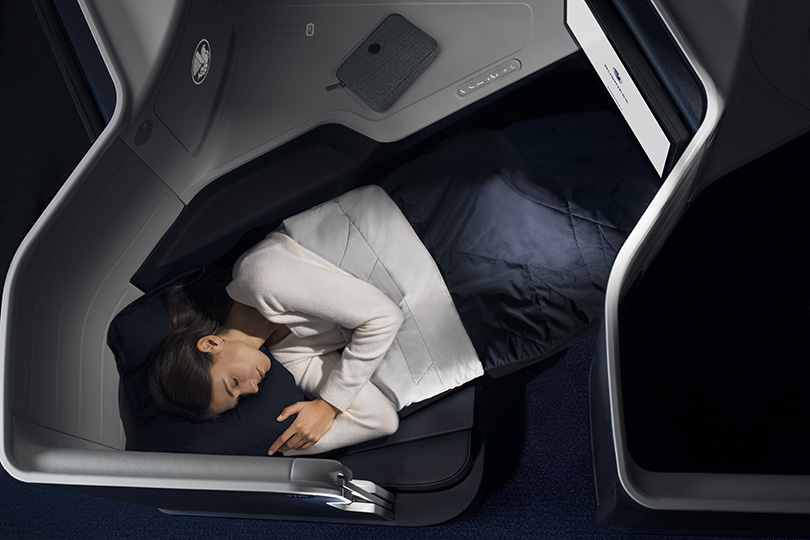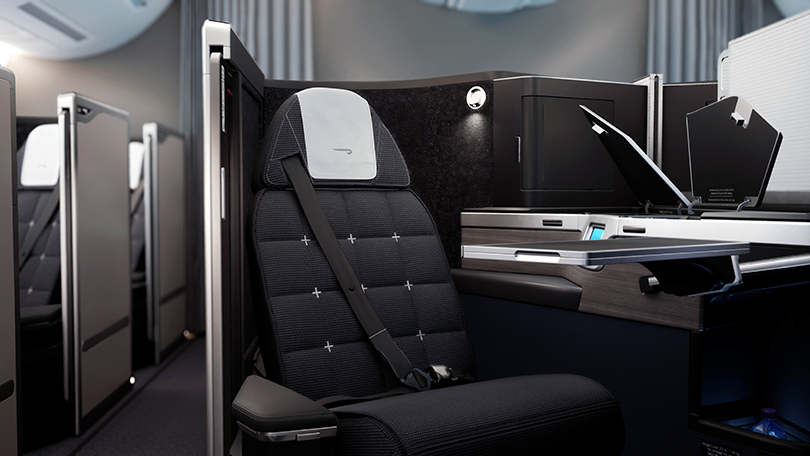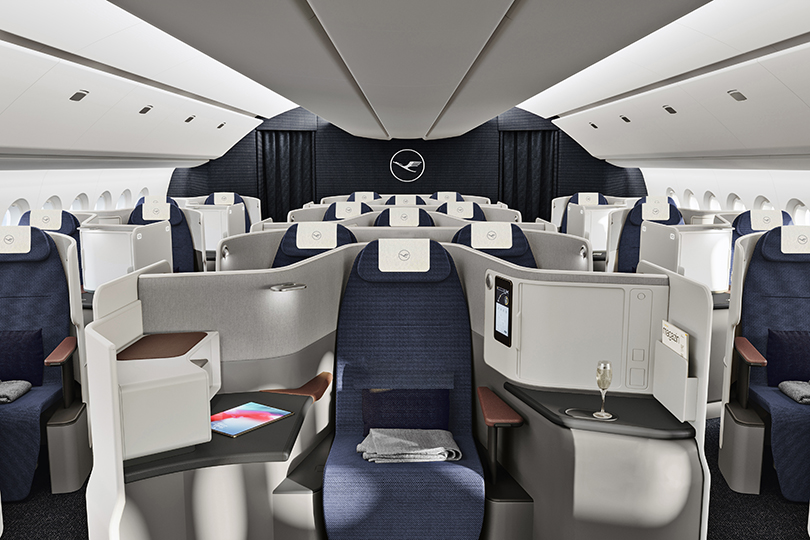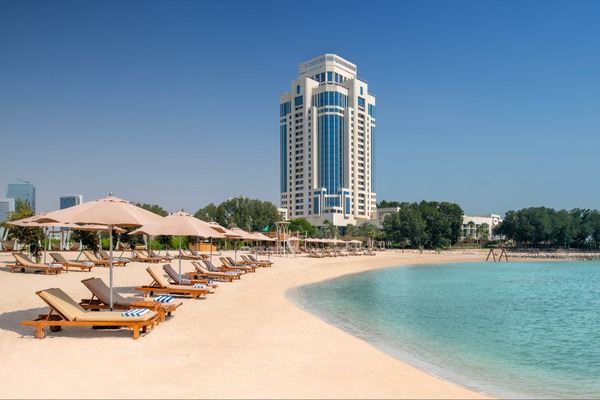Special report: How business class is flying high
Even eyebrow-raising post-pandemic air fares don’t seem to be prising luxury fliers away from their lie-flat beds – they’re just too accustomed to the comforts of an ever-improving life offered at the front of the plane

Tight capacity may have seen air fares shoot up, but this does not seem to be bothering premium travellers, with operators reporting soaring demand and a “damn the expense” attitude – if only for a limited period.
Caribtours chief executive Paul Cleary puts it bluntly: “Air fares have never been higher,” he says. “None of this is helped by very weak sterling versus the dollar – that alone is pushing up [package] prices – October 2022 compared with 2021 is probably up 40% just on exchange rates alone.
“More than 80% of our clients upgrade and that continues to be the case, but demand is so high and availability is tight on key routes at key times. It’s not necessarily stopping people, but the concern is that there has to be a point where people don’t want to pay that much more.”
He believes this year is an anomaly, though, and 2023 is “much more likely” to see normal travel patterns return.
“People have more money to spend on holidays this year – or they are just willing to spend more. Our average booking value of £10-11,000 has increased to close to £18,000. Some of that is coming from weak exchange rates, plus increased hotel rates and air fares, but people have just missed their holidays.”
Mark Hibbert, Lusso Travel’s operations director, agrees clients are prepared to pay the increased fares commanded by airlines. “Luxury clients tend to pay the going rate. If a flight price goes up, providing it’s no higher than a competitor, they still tend to book.” He attributes a slight autumn slowdown in sales to the UK’s economic and political uncertainty, rather than rising air fares.
Cabin comfort
Soaring air fares are bad news, but one consolation is those able to pay them can enjoy a plethora of new premium cabins when they fly.
The pandemic saw the world’s airlines ground their fleets and speed up refurbishment and redesigns during two years of minimal air traffic, with the results, in many cases, now ready to enjoy. These carriers have, in turn, prompted others to follow, with some big names now playing catch-up.
Two such examples are Air France and KLM, the latter in particular being a popular choice for fliers heading east via transferring at Schiphol.
KLM will join the now long list of carriers whose business class seat boasts privacy doors. Boeing 777s will feature the new World Business Class from 2023, while the smaller 787s will, like the 777 fleet, offer direct aisle access but without the enclosed design.
Air France has gone for a similar concept in its new 48-seat business cabin. The 1-2-1 layout means pairs of seats in the centre of the cabin have the bonus that the dividing panel can be lowered, which will appeal to couples, while seats at the front of the cabin have extra space. Air France has a large fleet with several different types of business class seat, but pledges that with the new design, all its business seats will be fully flat by autumn 2023, compared with 90% today.
Europe’s other major network carrier, Lufthansa, was due to debut updated versions of all four cabins on the new Boeing 777-X, which is so vast it features folding wing tips.
Delays to the aircraft following Covid and certification difficulties mean Lufthansa will now fit new seats – known as Allegris – next year on the Airbus A350 and Boeing 787-9. Lufthansa is bucking the trend for privacy doors throughout the cabin, reserving enclosed suites for the first row, which will carry an extra tariff. Full details will be confirmed next year.
Nearer to home, British Airways continues its cabin refurbishment programme, with the new Club World Suite already on Airbus A350s and Boeing 787-10s. The Suite should be on all Heathrow-based 777s by the end of 2022, with other aircraft types due to see refurbishment in 2023.
BA’s transatlantic partner American Airlines begins installing its latest Flagship Suite featuring privacy doors on new Boeing 787-9 deliveries from 2024. In a sign of its optimism, American’s 787s will offer 51 business seats instead of the current 30. The modified version of the Suite will also feature on American’s latest single-aisle Airbus A321XLR aircraft from late 2023, which will serve some UK regional routes.
United Airlines also has the A321XLR coming and must redesign its Polaris seat for it, meaning a privacy door is likely to be added to the current open design. The first is due in 2024 on transatlantic routes currently operated with Boeing 757s.
Suite sensation
Qatar Airways is another carrier having to carry out modifications. Its enclosed business class Qsuite is too big for new Boeing 787-9s entering the fleet, which feature a tweaked design in a 1-2-1 layout. Unlike the Qsuites found on the airline’s Airbus A350 fleet, all the Boeing’s business seats face forward, which will be a relief for some. Qatar Airways will also update its Qsuite when it takes the 777-X. It may also carry a small first class cabin of four seats, aimed at Qataris travelling to Heathrow.
Amongst all carriers, Qantas perhaps faces the biggest challenge in ensuring premium passengers are comfortable now it offers non-stop flights between London and Australia. In May, the airline ordered 12 Airbus A350-1000s to operate non-stop between Heathrow and Sydney, a journey of 19-21 hours depending on direction of travel and headwinds. On these aircraft, 40% of seats will be premium, with 52 Business suites. There will also be a wellbeing zone, with digital displays encouraging passengers to stretch their legs. The limbering up starts from late 2025.
One disappointment premium travellers often experience is transferring from a long-haul aircraft to a regional flight, which generally means a less comfortable seat. Recognising this, Singapore Airlines and Cathay Pacific are standardising their offering by absorbing their respective regional brands, SilkAir and Cathay Dragon.
Passengers connecting in Hong Kong onto Cathay’s regional flights will now find a new business class on Airbus A321neo aircraft, offering an inclined premium-economy style seat. Singapore Airlines has gone a step further with its regional fleet, with even single aisle Boeing 737 Max aircraft boasting three rows of lie-flat business class seats.
In the Middle East, Etihad may have downsized its fleet by a third since the pandemic, but new additions feature a revitalised business class. The first of these came in March with delivery of the airline’s new flagship, the Airbus A350-1000, which replace Boeing 777s. Seats on the A350, which operates one of the Heathrow-Abu Dhabi frequencies, are the same design as BA’s Club Suite and unlike previous Etihad premium cabins, all face forward, an important factor to some travellers.
From 2023, Etihad takes delivery of 11 Boeing 787-9 aircraft, which are smaller and require a different seat design, but which still feature privacy doors. Meanwhile, also new onboard are ceramics, glassware, cutlery and premium pillowcase and duvet set, all designed by Giorgio Armani in line with the airline’s commitment to sustainability.
Etihad’s point that its new seat is only on selected frequencies is one to bear in mind when booking any carrier – customers will be disappointed if led to believe they will be in a smart new cabin only to find they are not. Nevertheless, if you have a degree of certainty, it is a selling point.
Going greener
It is not just the hard product that has had a rethink. Airlines are conscious things like washbags and soft furnishings must now be seen as more sustainable, especially as business class flying, which takes up roughly the space of three economy seats, is not the most planet-friendly way to travel.
Amenity bags full of plastic are now rightly frowned on, with Chile’s Latam, for example, redesigning its travel kits as part of a drive to eliminate 100% of single use plastics by 2023. Latam now boasts reusable bags for the sleeping items and bamboo toothbrushes, with packaging made from paper. It’s a small step, but Latam estimates it previously carried nearly 1,800 tonnes of single-use plastic on international flights. Once airlines get over their sliding door obsession, it’s a fair bet that this type of thing is next on the list.
One big thing: TTG Luxury's green discovery
Producing airline food in arid areas is challenging, with water use a key concern. Emirates Flight Catering, which serves more than 100 carriers, this summer opened Bustanica, the world’s largest vertical farm in Dubai, harvesting more than three tonnes of leafy greens a day. The technique uses 95% less water than conventional techniques, because water added to plants evaporates and is recovered, saving more than 250 million litres a year compared with outdoor farming – an important factor given Dubai’s water is produced from energy-heavy desalination. The initiative guarantees airlines serving Dubai a reliable supply chain of items, with Bustanica producing a surplus sold in local supermarkets.

















